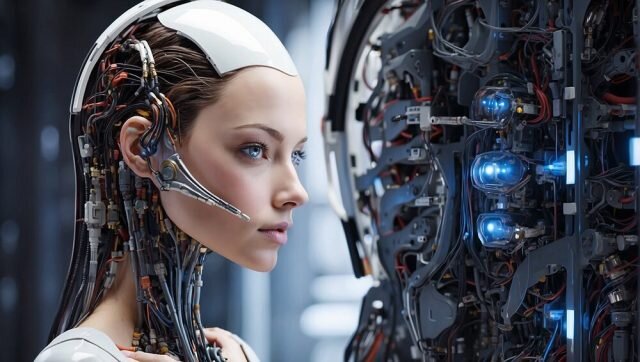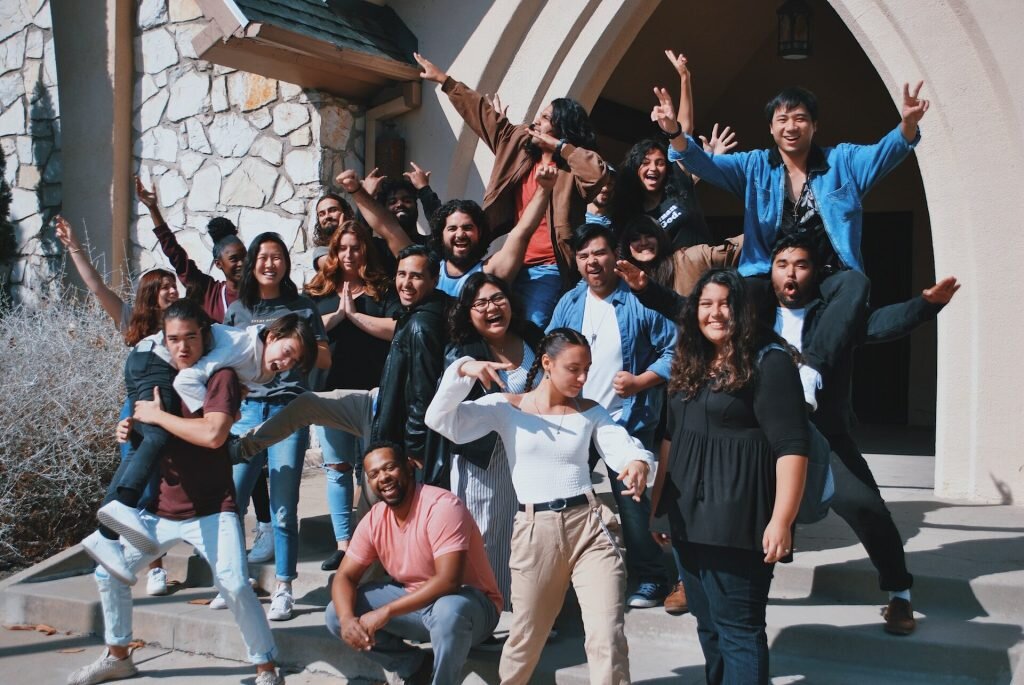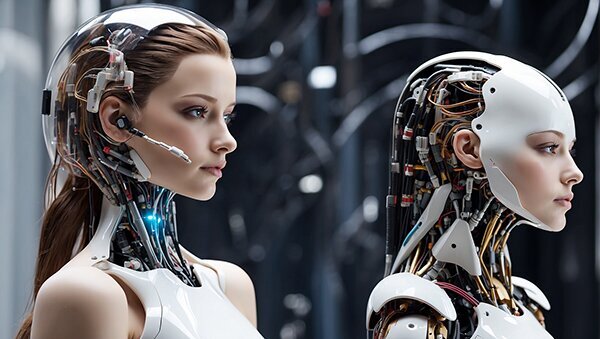
Artificial intelligence (AI) stands as a preeminent technology of the modern era, poised to transform the world and indelibly impact the very fabric of our existence.
Its far-reaching tentacles stretch across myriad sectors, promising transformation on a scale hitherto unimaginable. Healthcare, education, business, and entertainment, certainly no domain remains immune to AI’s disruptive influence.
However, accompanying this boundless potential are formidable challenges and hazards that demand meticulous scrutiny and governance. Ethical, social, and environmental concerns must be assiduously addressed to ensure AI’s safe and responsible deployment, lest we court unintended consequences that threaten the well-being of our planet and its inhabitants.
AI is certainly not a new phenomenon, but a continuation in the human quest for understanding and controlling the laws of nature.
Throughout history, humans have invented tools and machines that augment their natural abilities and enhance their quality of life. For example, the invention of the wheel, the printing press, the steam engine, the electricity, the computer, and the internet, have all revolutionized human civilization and culture.
 AI represents the progression of human ingenuity and technological progress, marking the latest milestone in our relentless pursuit of innovation.
AI represents the progression of human ingenuity and technological progress, marking the latest milestone in our relentless pursuit of innovation.
Harnessing the power of advanced computing, vast amounts of data, and sophisticated algorithms, AI has emerged as a revolutionary force that is capable of performing tasks previously thought to be the exclusive domain of human intellect.
From perception and reasoning to learning, decision-making, and even creativity, AI has proven itself to be a game-changer across numerous industries and domains. Moreover, AI’s ability to generate novel insights and knowledge, including scientific discoveries, inventions, and art, underscores its immense potential to reshape the fabric of our society and drive human progress forward.
However, AI is not a panacea, nor does it pose an inherent threat to human autonomy and dignity. Rather, AI constitutes a potent instrument that can be wielded for benevolent or malevolent purposes, contingent upon the motivations and behaviors of its designers and operators. AI serves as a collaborator and augmenter of human cognition, rather than a replacement. Furthermore, AI does not confer wisdom in and of itself; instead, it reflects and projects human values and objectives, thereby necessitating judicious consideration and oversight to ensure alignment with ethical principles and societal aspirations.
How will we use AI to benefit ourselves and others, and to address the global challenges and opportunities that we face? How will we ensure that AI is fair, ethical, responsible, and sustainable, and that it respects the rights and interests of all stakeholders? How will we foster a culture of innovation and collaboration, and a spirit of curiosity and learning, among the AI community and the society at large?
 These are some of the questions that we need to ask and answer as we enter the era of artificial intelligence.
These are some of the questions that we need to ask and answer as we enter the era of artificial intelligence.
It is an exciting and promising era, but also a complex and uncertain one. We need to be aware of the opportunities and challenges, and engage in informed and responsible dialogue and decision-making. We need to shape the future of AI, before it shapes us.
In this article, I will explore some of the aspects of the future of AI, and how it can help us to solve some of the most pressing problems and to seize some of the most promising opportunities that we face as a global community. I will also discuss some of the ethical and social implications of AI, and how we can ensure that it serves the common good and the human dignity. I intend to provide an optimistic view of technology development for the ultimate benefit of mankind.
AI and global challenges
One of the main benefits of AI is that it can help us to tackle some of the global challenges that threaten our survival and well-being, such as climate change, poverty, hunger, disease, inequality, and conflict.
AI can provide us with new tools and methods to monitor, analyze, predict, and mitigate these challenges, and to find innovative and sustainable solutions.
 For instance, AI can aid in combating climate change by optimizing energy efficiency, minimizing greenhouse gas emissions, bolstering renewable energy sources, and adapting to shifting weather patterns.
For instance, AI can aid in combating climate change by optimizing energy efficiency, minimizing greenhouse gas emissions, bolstering renewable energy sources, and adapting to shifting weather patterns.
Moreover, AI can assist in monitoring and safeguarding the environment, including biodiversity, forests, oceans, and water resources, as well as detecting and preventing pollution and waste.
Furthermore, AI can play a pivotal role in eradicating poverty and hunger by boosting agricultural productivity, curbing food waste, strengthening food security, and enhancing nutrition and health.
In addition, AI can facilitate access to high-quality education, healthcare, and financial services, while simultaneously empowering marginalized and vulnerable populations, such as women, children, and refugees.
AI can also significantly contribute to the realm of medicine, advancing medical research, diagnosis, treatment, and prevention.
Public health and hygiene can also benefit from AI, allowing for swifter response times to epidemics and pandemics. Mental health and well-being can be improved through AI-driven interventions, helping individuals cope with stress and trauma.
Moreover, AI can help address social and economic disparities by promoting human rights and upholding the rule of law. By fostering social cohesion and valuing diversity, AI can also aid in counteracting discrimination and hate.
Ultimately, the strategic utilization of AI can have a profound impact on various fronts, ultimately leading to a brighter future for all members of society.
These are some of the examples of how AI can help us to address the global challenges that we face. However, AI is not a silver bullet. AI cannot solve these problems alone, nor can it replace human judgment and responsibility. AI can only assist and augment human efforts, and it requires human guidance and oversight.
AI and ethical issues
One of the main challenges of AI is that it raises some ethical issues that need to be addressed and resolved, such as fairness, accountability, transparency, privacy, and security.
These issues are related to the values and principles that we want AI to respect and uphold, and to the impacts and consequences that AI may have on individuals and society.
 For example, fairness is the issue of whether AI treats everyone equally and impartially, and whether it avoids or corrects bias and discrimination.
For example, fairness is the issue of whether AI treats everyone equally and impartially, and whether it avoids or corrects bias and discrimination.
Accountability is the issue of whether AI can be held responsible and liable for its actions and outcomes, and whether it can be controlled and corrected.
Transparency is the issue of whether AI can be understood and explained, and whether it can be trusted and verified. Privacy is the issue of whether AI respects and protects the personal data and information of individuals and groups, and whether it can be consented and revoked. Security is the issue of whether AI is safe and reliable, and whether it can be protected and defended.
These are some of the ethical issues that AI poses, and that need to be addressed and resolved. However, there is no simple or universal answer to these issues, as they depend on the context and the purpose of AI, and on the values and preferences of the stakeholders involved.
Therefore, we need to engage in a dialogue and a debate among the AI community and the society at large, and to establish some norms and standards that can guide and regulate the development and use of AI.
We also need to monitor and evaluate the impacts and consequences of AI, and to ensure that it serves the common good and the human dignity.
AI and social implications
Another challenge of AI is that it has some social implications that need to be considered and managed, such as the impact on human skills, jobs, and education, and on human relationships, culture, and identity.
These implications are related to the changes and transformations that AI may bring to the way we work, learn, and live, and to the way we interact and communicate with each other and with machines.
 For example, AI may impact jobs by automating some tasks and roles, and by creating new ones.
For example, AI may impact jobs by automating some tasks and roles, and by creating new ones.
AI may also enhance human skills and abilities, and provide new opportunities and challenges for learning and development.
AI may also require new skills and competencies, such as digital literacy, critical thinking, and creativity, and new modes and methods of education, such as personalized, lifelong, and collaborative learning.
AI may also impact human relationships, culture, and identity by changing the way we communicate and collaborate with each other and with machines.
AI may also influence our emotions, values, and beliefs, and our sense of self and belonging. AI may also create new forms and expressions of culture and art, and new modes and mediums of storytelling and entertainment.
These are some of the social implications that AI may have, and that need to be considered and managed. However, there is no deterministic or inevitable outcome of these implications, as they depend on the choices and actions that we make as individuals and as a society, and on the opportunities and challenges that we face as a global community.
Therefore, we need to be proactive and adaptive, and to shape and influence the future of AI, and not to be passive and reactive, and to be shaped and influenced by it.
AI and technology development
The final challenge of AI is that it is not a static or fixed technology, but a dynamic and evolving one.
AI is constantly changing and improving, and creating new possibilities and solutions, as well as new risks and challenges.
AI is also influenced and affected by other technologies, such as quantum computing, neuromorphic computing, photonic computing, and nanotechnology, that may enable new forms and levels of intelligence and performance.
 Therefore, the future of AI is not a single or definite scenario, but a multiple of uncertain ones.
Therefore, the future of AI is not a single or definite scenario, but a multiple of uncertain ones.
We cannot predict or control the future of AI, but we can imagine and explore it, and we can prepare and plan for it.
We can also create and shape the future of AI, by making informed and responsible decisions and actions.
Embracing change and addressing concerns
Concerns regarding AI’s ethical implications, fears of job displacement and privacy invasion, and even predictions of an AI surpassing human intelligence have led to apprehension among certain segments of society.
These worries are not unfounded, but they must be addressed through careful consideration and planning.
 One key factor in ensuring a smooth transition into an AI-driven future is education.
One key factor in ensuring a smooth transition into an AI-driven future is education.
As AI continues to advance, workers may need to adapt their skill sets to remain relevant in the job market.
Governments, educational institutions, and corporations must invest in retraining programs that prepare individuals for the changing landscape.
Another concern is the potential misuse of AI. There is a risk that AI could exacerbate existing social issues, such as inequality and discrimination. It is essential to establish robust regulations and guidelines that prevent the longstanding exploitation of personal data and promote transparency in AI decision-making processes.
Furthermore, fostering diversity and inclusivity within the tech industry itself will help mitigate biases in AI system design.
A call to action for inclusive education
 The pervasive integration of AI into our daily lives demands urgent attention to address the existing digital divide.
The pervasive integration of AI into our daily lives demands urgent attention to address the existing digital divide.
As AI becomes increasingly ubiquitous, it is crucial that we prioritize educating the world about its capabilities, potential risks, and ethical implications.
Failure to do so will result in a widening chasm between those who harness the power of AI and those who are left behind, further exacerbating existing social and economic disparities.
The onus lies upon us as a society to ensure that the transformative potential of AI is accessible to all, lest we succumb to a dystopian future where the privileges of technological advancement are reserved for a select few.
It is only through concerted efforts to enhance educational opportunities and promote inclusivity that we can truly leverage the boundless possibilities of AI for the greater good of humanity.
For more business and entrepreneurship tips, subscribe to our weekly newsletter and follow us on Twitter, Facebook, Instagram, and LinkedIn.






